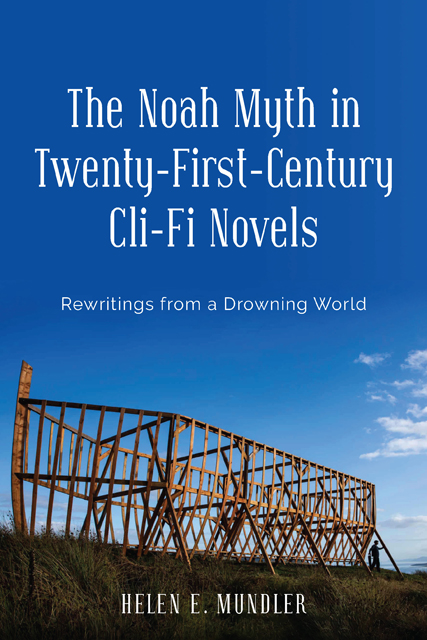Book contents
- Frontmatter
- Dedication
- Epigraph
- Contents
- Acknowledgments
- List of Abbreviations
- Introduction
- 1 An Odd Sort of Cli-Fi? Nathaniel Rich’s Odds Against Tomorrow
- 2 “Hadn’t mankind done it before—started from scratch?” Reinterpreting Visions of Past and Future in Margaret Atwood’s Maddaddam trilogy
- 3 Watering Down? Clare Morrall’s When the Floods Came
- 4 The Archive and After: A Kaleidoscopic Reading of Maggie Gee’s The Flood
- Conclusion
- Works Cited
- Index
2 - “Hadn’t mankind done it before—started from scratch?” Reinterpreting Visions of Past and Future in Margaret Atwood’s Maddaddam trilogy
Published online by Cambridge University Press: 17 December 2022
- Frontmatter
- Dedication
- Epigraph
- Contents
- Acknowledgments
- List of Abbreviations
- Introduction
- 1 An Odd Sort of Cli-Fi? Nathaniel Rich’s Odds Against Tomorrow
- 2 “Hadn’t mankind done it before—started from scratch?” Reinterpreting Visions of Past and Future in Margaret Atwood’s Maddaddam trilogy
- 3 Watering Down? Clare Morrall’s When the Floods Came
- 4 The Archive and After: A Kaleidoscopic Reading of Maggie Gee’s The Flood
- Conclusion
- Works Cited
- Index
Summary
Rewriting the Noah Myth: The Waterless Flood
Margaret Atwood’s Maddaddam trilogy comprises three relatively long and complex novels, published over a span of more than a decade: Oryx and Crake (2003), The Year of the Flood (2009), and Maddaddam (2014). The basic schema of a rewriting of the Noah myth which again takes in multiple contemporary crises, including climate change, is comparable to that of Rich’s novel, although there are significant differences. Atwood’s trilogy is broader in spatial and temporal scope than Odds Against Tomorrow: the action is set on both the east and west coasts of America, the emphasis on the longue durée identified in the previous chapter with regard to Rich’s novel is greater, and a higher number of characters is deployed. The flood in Atwood’s trilogy is universal rather than local, and in its wake things do not go back to how they were before, as is the case when the waters subside at the end of Rich’s novel, making it possible for Jane to set up a company along the lines of the one she worked in previously.
To give a brief synopsis for the purposes of this chapter—one which is necessarily selective and schematic given the considerable combined length of these three novels—Oryx and Crake opens on a post-catastrophe scene in which Jimmy believes himself to be the “last man” left on Earth. Anthropocene Anxiety no longer has any meaning, since wholesale destruction appears to have taken place. It emerges that a pandemic, which is dubbed in the second and third volumes The Waterless Flood, has occurred, and most human life has been wiped out. While in Odds Against Tomorrow, a pandemic is just one among the panoply of future dangers referenced by Mitchell (Odds, 25–26), in Atwood’s trilogy the pandemic is the central event, towards which the past builds, and away from which the future stretches.
The first volume introduces the reader to a dual temporality that will continue through all three volumes: the narrative alternates between present and past, between pre-and post-disaster.
- Type
- Chapter
- Information
- The Noah Myth in Twenty-First-Century Cli-Fi NovelsRewritings from a Drowning World, pp. 37 - 64Publisher: Boydell & BrewerPrint publication year: 2022



